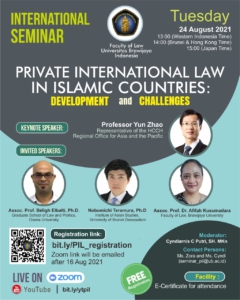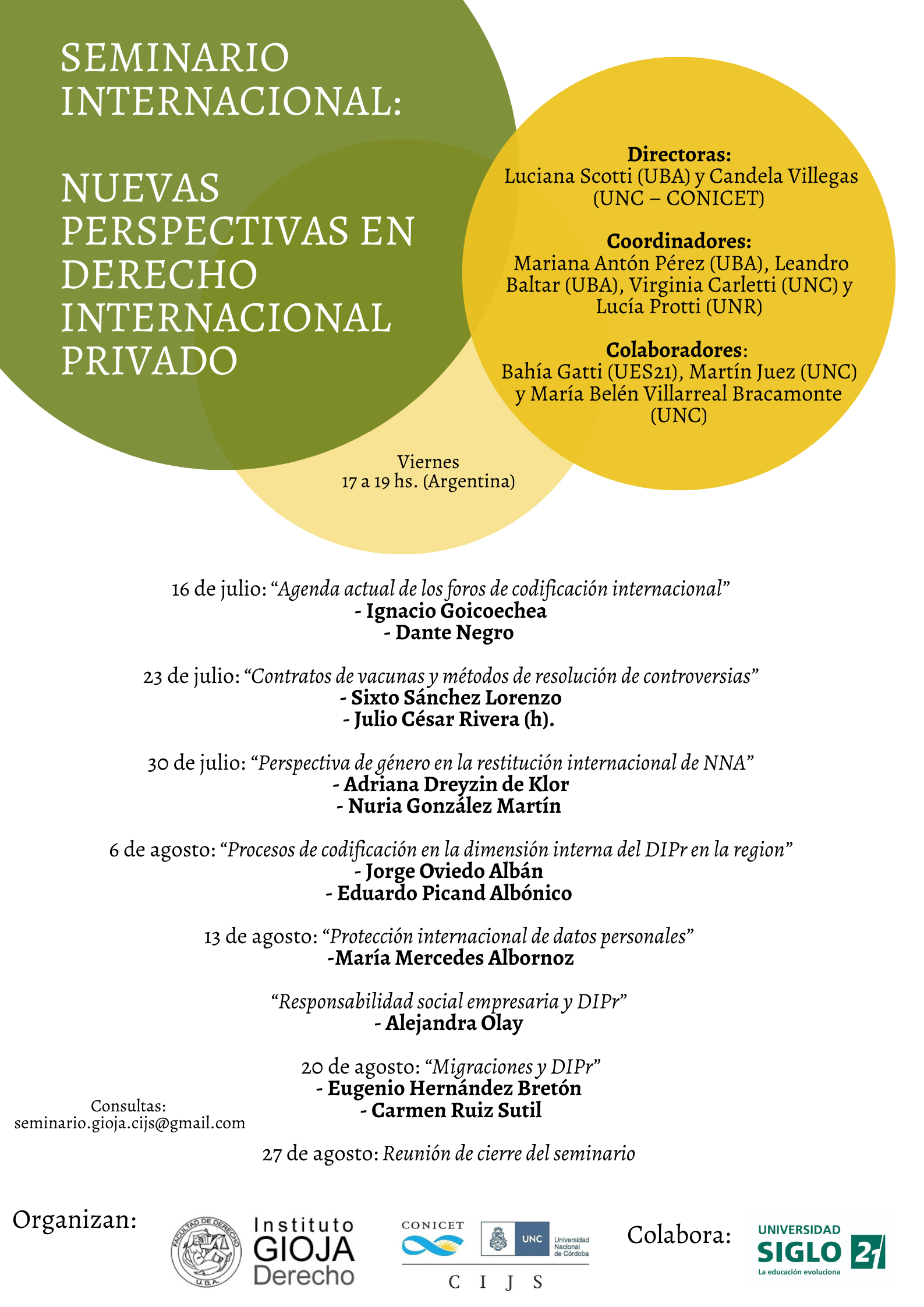The Nigerian Court of Appeal recognises the Immunity of the President of the Commission of ECOWAS from being impleaded in Nigerian courts
This is a case note on the very recent Nigerian Court of Appeal’s decision that recognised the immunity of the President of the Commission of ECOWAS (Economic Community of West African States) from being impleaded in Nigerian courts.[1]
In Nigeria, the applicable law in respect of diplomatic immunities and privileges is the Diplomatic Immunities and Privileges Act, which implements aspects of the Vienna Convention on Diplomatic Relations 1961 (the “Vienna Convention”). Under the Diplomatic Immunities and Privileges Act, foreign envoys, consular officers, members of their families, and members of their official and domestic staff are generally entitled to immunity from suit and legal process.[2] Such immunities may also apply to organisations declared by the Minister of External Affairs to be organisations, the members of which are sovereign powers (whether foreign powers or Commonwealth countries or the Governments thereof).[3]
Where a dispute arises as to whether any organisation or any person is entitled to immunity from suit and legal process, a certificate issued by the Minister stating any fact relevant to that question shall be conclusive evidence of that fact.[4]
In a very recent case the claimant/respondent who was a staff of the Commission of ECOWAS sued the defendant/appellant in the National Industrial Court in Nigeria for orders declaring his suspension from office by the Commission unlawful and a violation of ECOWAS Regulations, and damages from the defendant/appellant for publishing what the claimant/respondent considered a “libelous” suspension letter. The defendant/appellant responded to the suit with a statement of defence and equally filed a motion of notice objecting to the jurisdiction of the National Industrial Court on grounds of diplomatic immunity he enjoys from proceedings in municipal courts of Nigeria by virtue of the Revised Treaty of ECOWAS, General Convention on Privileges and Immunities of ECOWAS and the Headquarters Agreement between ECOWAS and the Government of the Republic of Nigeria. He also placed reliance on Principles of Staff Employment and ECOWAS staff Regulations. In addition he attached a certificate from Nigeria’s Minister of Foreign Affairs which acknowledged his diplomatic immunity.
The trial court (Haastrup J) held that it had jurisdiction and dismissed the preliminary objection of the defendant/appellant. It relied on Section 254C (2)[5] of the 1999 Constitution (as amended in 2011) and Order 14A Rule 1 (1)[6] of the National Industrial Court of Nigeria(Civil Procedure) Rules, 2017 to hold that the National Industrial Court had jurisdiction to resolve all employment matters in Nigeria, including cases that have an international element.
The Nigerian Court of Appeal unanimously allowed the appeal. Ugo JCA in his leading judgment held as follows:
“So this Certificate of the Minister of Foreign Affairs of Nigeria attached to the affidavit of Chika Onyewuchi in support of appellant’s application/objection before the trial National Industrial Court for the striking out of the suit is sufficient and in fact conclusive evidence of the immunity claimed by appellant. That also includes the statement of the Minister in paragraph 2 of the same certificate that the ECOWAS Revised Treaty of 1993 was “ratified by the Federal Republic of Nigeria on 1st July, 1994,” thus, putting paid to the trial Judge’s contention that appellant needed to prove that the said treaty was ratified by Nigeria for him to properly claim immunity.
Even Section 254C(2) of the 1999 Constitution of the Federal Republic of Nigeria which states that ‘Notwithstanding anything to the contrary in this Constitution, the National Industrial Court shall have the jurisdiction and power to deal with any matter connected with or pertaining to the application of any international convention, treaty or protocol of which Nigeria has ratified relating to labour, employment, workplace, industrial relations or matters connected therewith,’ does not by any means have the effect of conferring jurisdiction on the National Industrial Court over diplomats. In fact Section 254C(2) of the 1999 Constitution, as was correctly argued by Mr. Obi, only confers on the National Industrial Court power to apply international conventions, protocols and treaties ratified by Nigeria relating to labour, employment, workplace, industrial relations and matters connected therewith while exercising its jurisdiction over persons subject to its jurisdiction. Diplomats who enjoy immunity from Court processes from municipal Courts in Nigeria like the Respondent are not such persons. Incidentally, the apex Court in African Reinsurance Corporation v. Abate Fantaye (1986) 3 NWLR (PT 32) 811 in very similar circumstances conclusively put to rest this issue of immunity from proceedings in municipal Courts enjoyed by persons like appellant. That case was cited to the trial Judge so it is surprising that she did not make even the slightest reference to it in expanding her jurisdiction to appellant who has always insisted, correctly, on his immunity. In truth, the lower Court did not simply expound its jurisdiction but attempted to expand it too. A Court is competent when, among others, the subject matter of the case is within its jurisdiction and there is no feature in the case which prevents the Court from exercising its jurisdiction…
Appellant’s diplomatic status and his consequent immunity from proceedings in the Courts of this country was such a feature that prevented the National Industrial Court from exercising jurisdiction over him and Suit No. NICN/ABJ/230/2019 of respondent; it was therefore wrong in holding otherwise and dismissing his preliminary objection…”[7]
Adah JCA in his concurring judgment held as follows:
“The Appellant, being an international organization enjoys immunity from suit and legal process, both by virtue of Section 11 and 18 of the 1962 Act, and Certificate issued by the Minister of External Affairs. Where a sovereign or International Organization enjoys immunity from suit and legal process, waiver of such immunity is not to be presumed against it. Indeed, the presumption is that there is no waiver until the contrary is established. Thus, waiver of immunity by a Sovereign or International Organization must be expressly and positively done by that Sovereign or International Organization.
In the instant case, the appellant from the record before the Court is an international organization. The Foreign Affairs Minister of Nigeria had given a certificate to indicate the immunity of the appellant. Exhibit CA issued by the Ministry of Foreign Affairs on 16th January, 2020 in paragraphs 2 and 3 thereof state as follows:
“2. The ministry of Foreign Affairs wishes to reaffirm the status of the ECOWAS Commission as an international organization and the immunity and privileges of the Commission and its staff members with exception of Nigerians and holders of Nigeria permanent residency from Criminal, Civil and Administrative proceedings by virtue of ECOWAS Revised Treaty by of 1993, which was ratified by the Federal Republic of Nigeria on 1st July, 1994.
3. The Headquarters Agreement between the ECOWAS Commission and the Federal Republic of Nigeria also confers immunity on officials and other employees of ECOWAS by virtue of Article VII (3) (C) of the Agreement.”
It is very clear therefore, that the appellant is covered by the Diplomatic Immunities and Privileges Act and is not amenable to the jurisdiction of the Municipal Courts. The fact that their base is in Nigeria or that Nigeria is the Host Country of the appellant does not make the appellant subserviate to the jurisdiction of Nigerian Courts. It is therefore, the law as stated lucidly in the leading judgment of my learned brother that the lower Court has no jurisdiction to entertain the claim against the appellant…”[8]
This is not the first time Nigerian courts have dealt with the issue of impleading a diplomat or foreign sovereign before the Nigerian court.[9] The decision of the trial judge was surprising in view of the weight of authorities from the Nigerian Supreme Court and Court of Appeal on the concept of diplomatic immunities in Nigeria. The claimant/respondent may have argued that matters of employment qualify as waiver of diplomatic immunity, but this position has never been explicitly endorsed by Nigerian courts. The Supreme Court of Nigeria has only accepted the concept of waiver in situations where the person claiming immunity entered into commercial transactions with the claimant.[10]
Looking at the bigger picture how does an employee who has been unfairly dismissed by a diplomatic organisation gain access to justice in Nigerian and African courts? Should the law be reformed in Nigeria and African countries to take into account the interest of employees as weaker parties?
[1] President of the Commission of ECOWAS v Ndiaye (2021) LPELR-53523(CA).
[2]Diplomatic Immunities and Privileges Act, Cap D9 LFN 2004 ss 1, 3-6.
[3]ibid, ss 11 and 12.
[4]ibid, s 18.
[5] ‘Notwithstanding anything to the contrary in this Constitution, the National Industrial Court shall have the jurisdiction and power to deal with any matter connected with or pertaining to the application of any international convention, treaty or protocol of which Nigeria has ratified relating to labour, employment, workplace, industrial relations or matters connected therewith.’
[6] It provides that:
1.—(1) Where an action involves a breach of or non-compliance with an international protocol, a convention or treaty on labour, employment and industrial relations, the Claimant shall in the complaint and witness statement on oath, include,
(a) the name, date and nomenclature of the protocol, convention or treaty ; and
(b) proof of ratification of such protocol, convention or treaty by Nigeria.
(2) In any claim relating to or connected with any matter, the party relying on the International Best Practice, shall plead and prove the existence of the same in line with the provisions relating to proof of custom in the extant Evidence Act.”
[7] President of the Commission of ECOWAS v Ndiaye (2021) LPELR-53523(CA) 19-20.
[8] Ibid 24-26.
[9] See generally CSA Okoli and RF Oppong, Private International Law in Nigeria (Hart, Oxford, 2020) (chapter 7).
[10]African Reinsurance Corporation v JDP Construction (Nig) Ltd (2007) 11 NWLR 224, 234-5 (Akintan JSC)..
 The Faculty of Law, Brawijaya University, Indonesia is organizing a one-day international online seminar on Private International Law in Islamic Countries – Developments and Challenges. The main purpose of the seminar is to examine and discuss the current situation of private international law in Islamic countries especially from the point of view of the influence of religion (Sharia/Islamic law) on the regulation of private international relationships.
The Faculty of Law, Brawijaya University, Indonesia is organizing a one-day international online seminar on Private International Law in Islamic Countries – Developments and Challenges. The main purpose of the seminar is to examine and discuss the current situation of private international law in Islamic countries especially from the point of view of the influence of religion (Sharia/Islamic law) on the regulation of private international relationships.


